Fishrot arrests: One year on
As the so-called Fishrot Six mark a year behind bars in the country's maximum security jail awaiting trial, we take a trip down memory lane of events as they unfolded.
TOIVO NDJEBELA
WINDHOEK
It's November 2019 and the country is gripped by election fever.
The ruling party Swapo, in power since 1990, is seeking its seventh general election victory. Its presidential candidate Hage Geingob, still consumed by the record-smashing 87% votes he attained five years earlier in 2014, was not taking chances.
A political scientist with a PhD from the United Kingdom, a master's degree from the USA and mountains of experience in that space, Geingob sensed the nation's discontent.
Growing discontent
Youth unemployment stood at 43.4% and government debt was equivalent to 53.3% of the country's GDP. Still Geingob needed to win a second term in office.
From a symbolic vantage point, it was inconceivable for Geingob to garner a lower percentage of the vote, let alone losing the contest.
International rating agencies had been breathing down Geingob's neck all year, like vultures. In October 2019, just a month before the general election, here came Fitch with their unflattering remarks on Namibia and the Geingob administration.
“The Namibian economy has been in recession since the end of the mining- and credit-driven boom in 2Q16 [second quarter of 2016],” Fitch said, while highlighting prospects of growing government debts, low growth and lethargic fiscal reforms.
A tricky campaign
The big fish of Swapo converged to hammer out a strategy going into the election. A witty political animal, Geingob looked up the table and there sat his blue-eyed boy Sacky Shanghala – a rising star in the party who had ascended to the Central Committee in 2017.
Young, fairly eloquent in his 'rwa-rwa' English and popular among the youth, Shanghala was a campaign attraction and a goldmine needed to restore the fading hope in the desponded armies of young people.
The youth were constantly reminded that their day in the sun would come, and that young graduates must create jobs for themselves. It p**sed off many of them.
There were growing murmurs of discontent among the older generations too. Swapo knew appeasing the youth alone was inadequate, so someone with political currency had to be thrust into the thick of things to pull the 'oumas' and 'oupas' of the nation into the Swapo fold.
The Nujoma effect
Founding President Sam Nujoma, aged 90 at the time, was dragged up from his retirement couch and handed his walking stick to go and address the masses at Oshikuku in the Omusati Region.
A Nujoma backing for any of the warring factions in Swapo was crucial heading into that election. Geingob's fundamental challenge at the time was twofold; he had to fend off fellow Swapo member Panduleni Itula, an independent candidate within the party, as well as a flurry of opposition parties all vying to bite into his support.
On 9 November, Nujoma limped to the podium to address the masses at Oshikuku and hammer home the essence of why Swapo was still the vehicle to drive Namibia to the promised land of socio-economic milk and honey.
Standing a few metres from the podium was Shanghala, who waited with bated breath for Nujoma to state on the record which of the two Swapo contestants the electorate should put their money on.
Nujoma regurgitated a few clichés and limped off the stage without stating who should be elected as president. Whether this was by default or by design remains an enigma to date.
State, categorically
Shanghala, sensing the anomaly in his report back to Windhoek if Nujoma did not state his candidate of choice, quickly ran to the retired statesman and told him to endorse Geingob for president.
Nujoma was assisted back onto the podium, from which he declared: “To make it categorically clear, we only have one candidate and that candidate is President Hage Geingob.”
Shanghala, clad in a white shirt and cap bearing the Swapo symbols – and dark sunglasses – danced to the sound of endorsement.
Critics of the colourful moment skinned Shanghala alive, saying he had no business telling a man of Nujoma's stature who to declare as the candidate of choice. They called it an abomination that would catch up with the youthful minister.
At the other end of the spectrum was an argument that the justice minister had an obligation to remind Nujoma, whose memory at 90 is as frail as that of a seven-year-old.
Beginning of the end
Three days later, on 13 November, the unthinkable happened. Shanghala, his business partner James Hatuikulipi and his cabinet counterpart responsible for fisheries, Bernard Esau, are fodder for screaming international news headlines.
The damning allegation was that they were at the heart of a scandal in which they had received millions of dollars in bribes from Icelandic seafood company Samherji, which they gave Namibian fishing quotas in return.
News network Al-Jazeera, which investigated the allegations with finesse and patience, even produced a documentary, Anatomy of a Bribe, in which the two ministers were secretly filmed and put on the spot about their alleged gross mischiefs.
Resignations
A raging Geingob hastily summoned the Swapo top-four leaders to State House: “They have to go,” Geingob told the congregation, as Namibian Sun reported at the time.
His lieutenants nodded in affirmation. “Tell Shanghala and Esau I want to see them urgently in my office,” Geingob told his aides.
Shanghala, smelling the tone and intent of the invite, asked his ministerial driver to take his sleek ministerial Mercedes-Benz to the Government Garage. He drove himself to Auasblick and arrived at the State House in one of his luxury private vehicles. Moments later, Esau pulled up too.
If Geingob was spitting fire in that moment, the nation had smoke coming out of its ears in anger. The allegations were, by a country mile, the biggest Namibia has ever faced.
After talks with Geingob, a public statement was issued in which the nation was told the two had resigned from their ministerial positions. Geingob thanked the two men for their “patriotism”, further angering followers of the shocking developments.
Feeling the heat, Shanghala and Hatuikulipi set off for their posh homes in Cape Town, South Africa.
The arrests
Ten days later, on 23 November – just four days before the presidential and National Assembly elections – news broke that Esau and another man implicated in the scandal, Hatuikupi's colleague at Investec Asset Management Ricardo Gustavo, had been arrested. The Anti-Corruption Commission (ACC) and the Namibian Police then stated that Shanghala and Hatuikulipi must return to the country to face the music – including the prospect of arrest, like their two alleged partners in crime.
After days of communicating with the Namibian authorities through their lawyers, the two 'fugitives' confirmed they would return home.
The police, media and ACC agents, like eagles on a hare, rushed to Hosea Kutako airport to pounce on the two business partners' arrival.
It was alleged they had booked flights with a local airline but when that flight landed, Shanghala and Hatuikulipi never emerged from the tunnel.
It later emerged that the filthy-rich men had chartered a private plane and entered the country through the Eros airport. They headed straight for their two adjacent farms in the Leonardville area of the Omaheke Region, where they were arrested at 06:00 on Election Day.
Hatuikulipi's cousin, Tamson 'Fitty' Hatuikulipi, who is married to Esau's daughter, and Pius Mwatelulo, an employee at a company owned by Shanghala and James, were also arrested.
WINDHOEK
It's November 2019 and the country is gripped by election fever.
The ruling party Swapo, in power since 1990, is seeking its seventh general election victory. Its presidential candidate Hage Geingob, still consumed by the record-smashing 87% votes he attained five years earlier in 2014, was not taking chances.
A political scientist with a PhD from the United Kingdom, a master's degree from the USA and mountains of experience in that space, Geingob sensed the nation's discontent.
Growing discontent
Youth unemployment stood at 43.4% and government debt was equivalent to 53.3% of the country's GDP. Still Geingob needed to win a second term in office.
From a symbolic vantage point, it was inconceivable for Geingob to garner a lower percentage of the vote, let alone losing the contest.
International rating agencies had been breathing down Geingob's neck all year, like vultures. In October 2019, just a month before the general election, here came Fitch with their unflattering remarks on Namibia and the Geingob administration.
“The Namibian economy has been in recession since the end of the mining- and credit-driven boom in 2Q16 [second quarter of 2016],” Fitch said, while highlighting prospects of growing government debts, low growth and lethargic fiscal reforms.
A tricky campaign
The big fish of Swapo converged to hammer out a strategy going into the election. A witty political animal, Geingob looked up the table and there sat his blue-eyed boy Sacky Shanghala – a rising star in the party who had ascended to the Central Committee in 2017.
Young, fairly eloquent in his 'rwa-rwa' English and popular among the youth, Shanghala was a campaign attraction and a goldmine needed to restore the fading hope in the desponded armies of young people.
The youth were constantly reminded that their day in the sun would come, and that young graduates must create jobs for themselves. It p**sed off many of them.
There were growing murmurs of discontent among the older generations too. Swapo knew appeasing the youth alone was inadequate, so someone with political currency had to be thrust into the thick of things to pull the 'oumas' and 'oupas' of the nation into the Swapo fold.
The Nujoma effect
Founding President Sam Nujoma, aged 90 at the time, was dragged up from his retirement couch and handed his walking stick to go and address the masses at Oshikuku in the Omusati Region.
A Nujoma backing for any of the warring factions in Swapo was crucial heading into that election. Geingob's fundamental challenge at the time was twofold; he had to fend off fellow Swapo member Panduleni Itula, an independent candidate within the party, as well as a flurry of opposition parties all vying to bite into his support.
On 9 November, Nujoma limped to the podium to address the masses at Oshikuku and hammer home the essence of why Swapo was still the vehicle to drive Namibia to the promised land of socio-economic milk and honey.
Standing a few metres from the podium was Shanghala, who waited with bated breath for Nujoma to state on the record which of the two Swapo contestants the electorate should put their money on.
Nujoma regurgitated a few clichés and limped off the stage without stating who should be elected as president. Whether this was by default or by design remains an enigma to date.
State, categorically
Shanghala, sensing the anomaly in his report back to Windhoek if Nujoma did not state his candidate of choice, quickly ran to the retired statesman and told him to endorse Geingob for president.
Nujoma was assisted back onto the podium, from which he declared: “To make it categorically clear, we only have one candidate and that candidate is President Hage Geingob.”
Shanghala, clad in a white shirt and cap bearing the Swapo symbols – and dark sunglasses – danced to the sound of endorsement.
Critics of the colourful moment skinned Shanghala alive, saying he had no business telling a man of Nujoma's stature who to declare as the candidate of choice. They called it an abomination that would catch up with the youthful minister.
At the other end of the spectrum was an argument that the justice minister had an obligation to remind Nujoma, whose memory at 90 is as frail as that of a seven-year-old.
Beginning of the end
Three days later, on 13 November, the unthinkable happened. Shanghala, his business partner James Hatuikulipi and his cabinet counterpart responsible for fisheries, Bernard Esau, are fodder for screaming international news headlines.
The damning allegation was that they were at the heart of a scandal in which they had received millions of dollars in bribes from Icelandic seafood company Samherji, which they gave Namibian fishing quotas in return.
News network Al-Jazeera, which investigated the allegations with finesse and patience, even produced a documentary, Anatomy of a Bribe, in which the two ministers were secretly filmed and put on the spot about their alleged gross mischiefs.
Resignations
A raging Geingob hastily summoned the Swapo top-four leaders to State House: “They have to go,” Geingob told the congregation, as Namibian Sun reported at the time.
His lieutenants nodded in affirmation. “Tell Shanghala and Esau I want to see them urgently in my office,” Geingob told his aides.
Shanghala, smelling the tone and intent of the invite, asked his ministerial driver to take his sleek ministerial Mercedes-Benz to the Government Garage. He drove himself to Auasblick and arrived at the State House in one of his luxury private vehicles. Moments later, Esau pulled up too.
If Geingob was spitting fire in that moment, the nation had smoke coming out of its ears in anger. The allegations were, by a country mile, the biggest Namibia has ever faced.
After talks with Geingob, a public statement was issued in which the nation was told the two had resigned from their ministerial positions. Geingob thanked the two men for their “patriotism”, further angering followers of the shocking developments.
Feeling the heat, Shanghala and Hatuikulipi set off for their posh homes in Cape Town, South Africa.
The arrests
Ten days later, on 23 November – just four days before the presidential and National Assembly elections – news broke that Esau and another man implicated in the scandal, Hatuikupi's colleague at Investec Asset Management Ricardo Gustavo, had been arrested. The Anti-Corruption Commission (ACC) and the Namibian Police then stated that Shanghala and Hatuikulipi must return to the country to face the music – including the prospect of arrest, like their two alleged partners in crime.
After days of communicating with the Namibian authorities through their lawyers, the two 'fugitives' confirmed they would return home.
The police, media and ACC agents, like eagles on a hare, rushed to Hosea Kutako airport to pounce on the two business partners' arrival.
It was alleged they had booked flights with a local airline but when that flight landed, Shanghala and Hatuikulipi never emerged from the tunnel.
It later emerged that the filthy-rich men had chartered a private plane and entered the country through the Eros airport. They headed straight for their two adjacent farms in the Leonardville area of the Omaheke Region, where they were arrested at 06:00 on Election Day.
Hatuikulipi's cousin, Tamson 'Fitty' Hatuikulipi, who is married to Esau's daughter, and Pius Mwatelulo, an employee at a company owned by Shanghala and James, were also arrested.



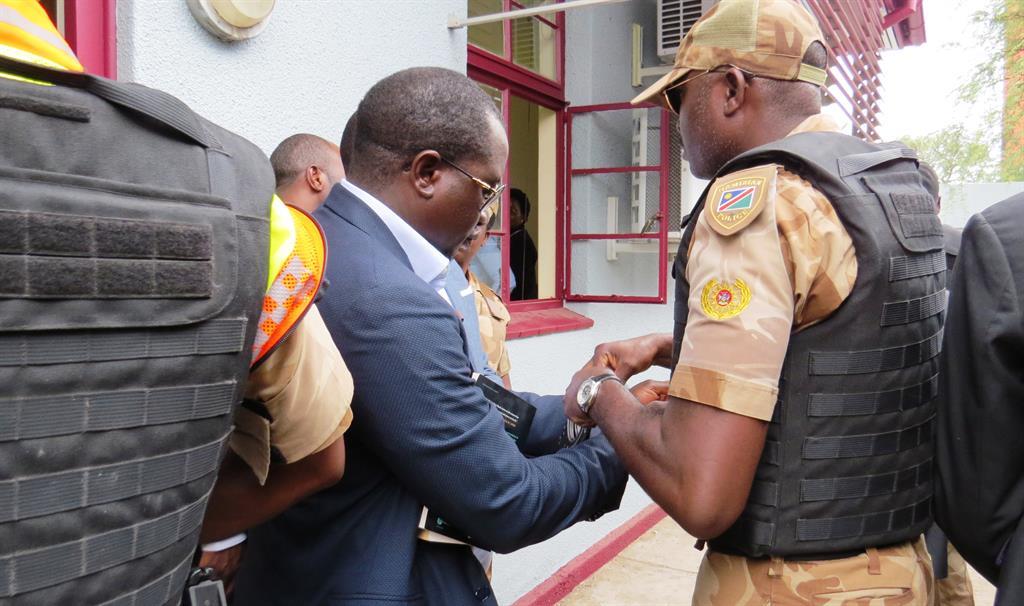
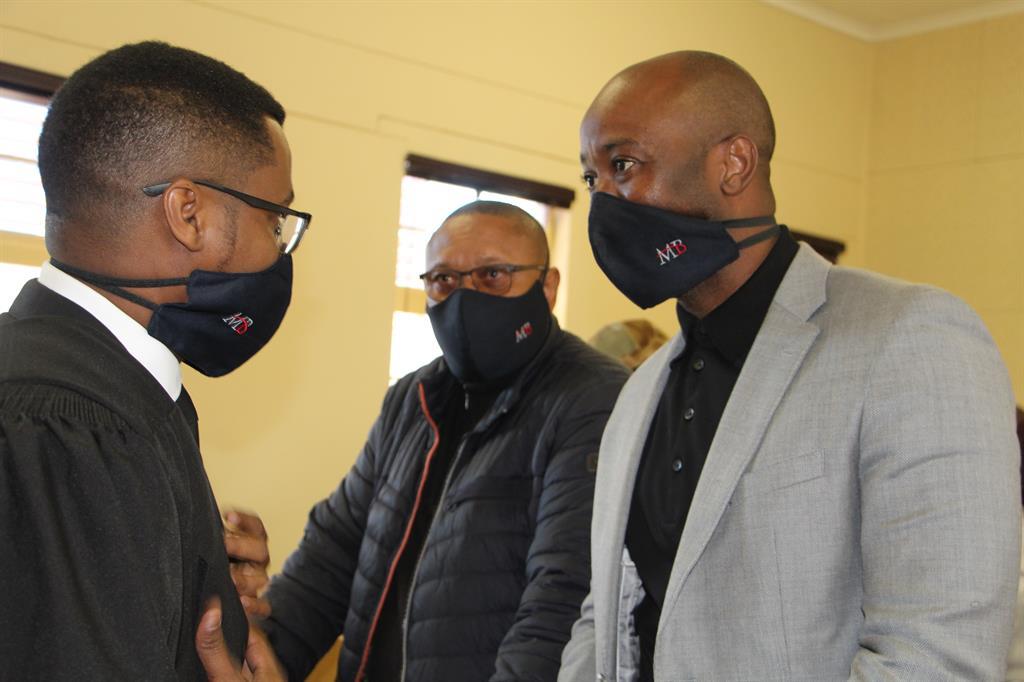
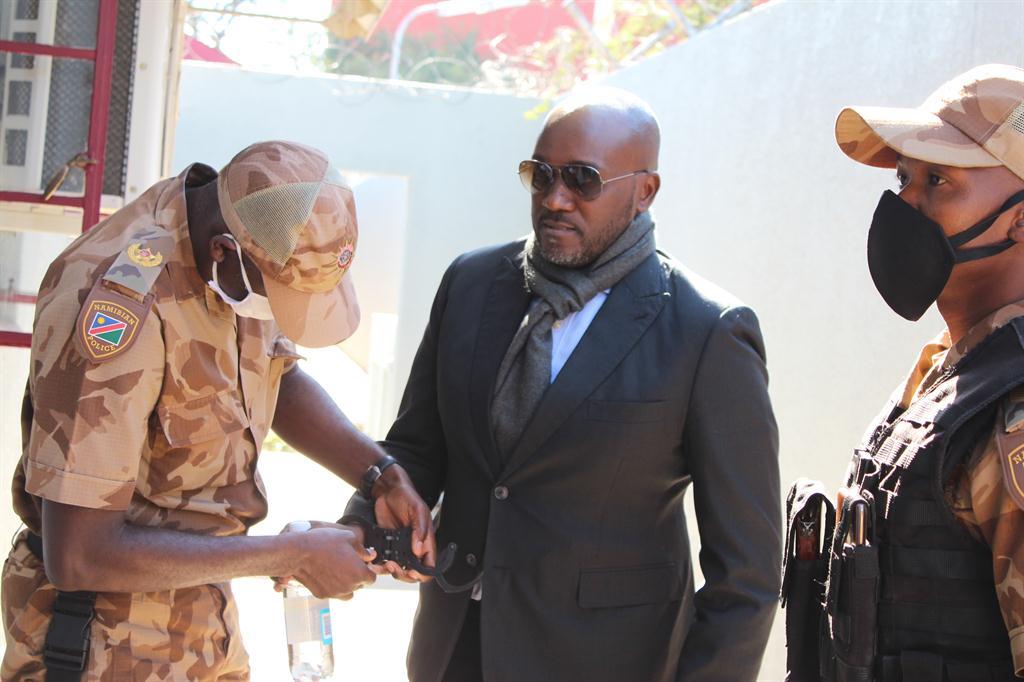
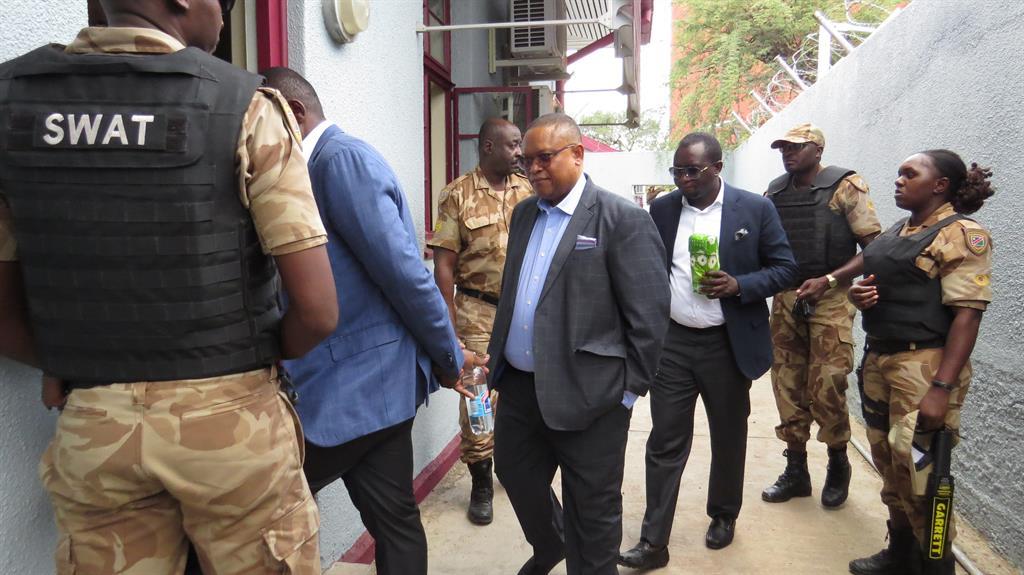
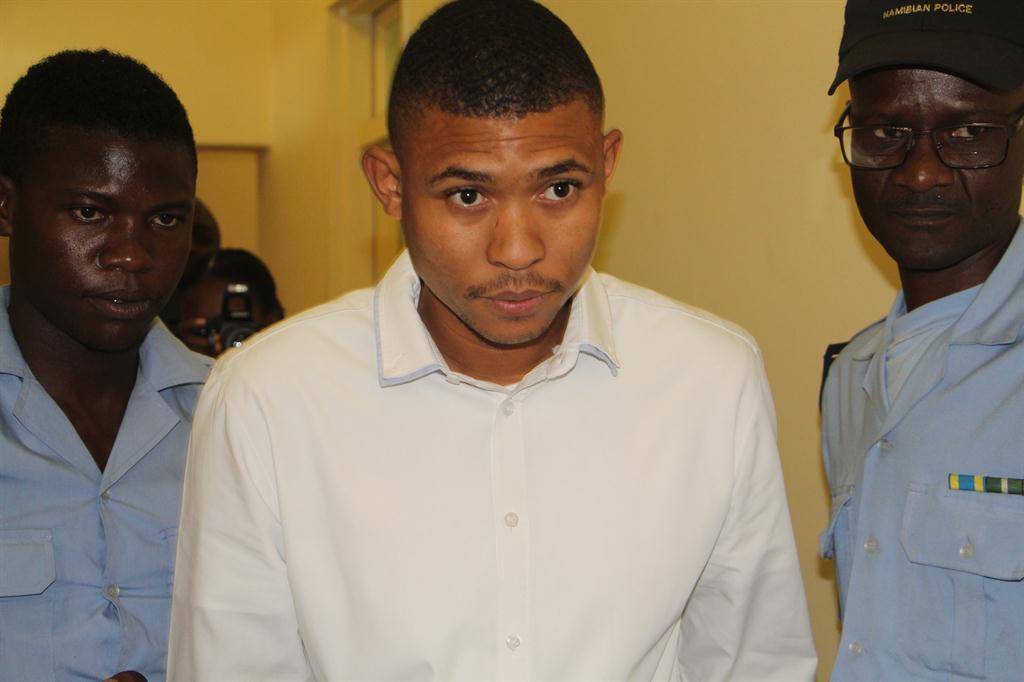

Comments
Namibian Sun
No comments have been left on this article